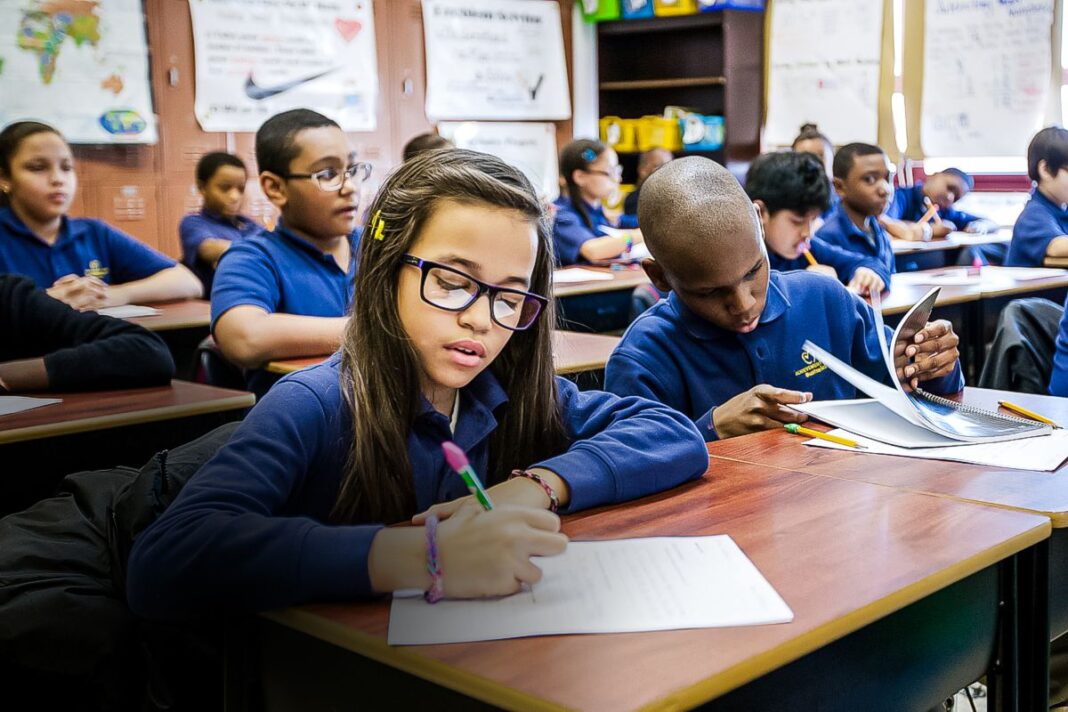Public funding for charter schools averages about $7,000 per student, about 30 percent less than what traditional public schools receive.
Charter schools recently received a $60 million funding increase from the otherwise shrinking Department of Education, bringing federal support for the taxpayer-funded alternative to public schools to $500 million dollars ahead of the 2025–2026 academic year. It is a boost, although it is still much less than what lower-performing neighborhood schools get.
Education Secretary Linda McMahon said she views the increase as a wise investment: Charter schools across the nation are scoring better than traditional public schools in math, reading, and college readiness assessments.
“In most instances, they are outperforming their public schools in that area,” she told the Senate Appropriations Committee on June 3.
With the increase in funding, along with momentum from the national school choice movement and recognition for high performance across the nation, charter schools throughout the country are poised for additional financial boosts through federal and state legislation, as well as generous donations from supporting organizations.
Closing the Achievement Gap
In 2024, Success Academy Charter Schools locations in New York City, which mainly serve low-income minority children, boasted state assessment passing rates of 83 percent in English language arts and 96 percent in math. That compares with 49 percent and 53 percent, respectively, for students in New York City’s traditional public schools.
“We’re not just closing the achievement gap, but reversing the gap,” Success Academy founder Eva Moskowitz said during a May 14 House Education and the Workforce Committee hearing on charter schools.
Signature School, a charter high school in Evansville, Indiana, recorded an average SAT score of 1316, compared with the 1050 national average, according to its website.
Even though funding for charter school students in Indiana is about $3,000 less per student than for traditional Indiana public schools, Signature is still able to require all students to participate in Advanced Placement or International Baccalaureate programs. Thirteen of the 97 students in this year’s graduating class received full, merit-based scholarships to prestigious colleges and universities, Jean Hitchcock, the school’s executive director, told The Epoch Times.
“The whole premise is, by keeping the bar high, everyone does better,” she said.








